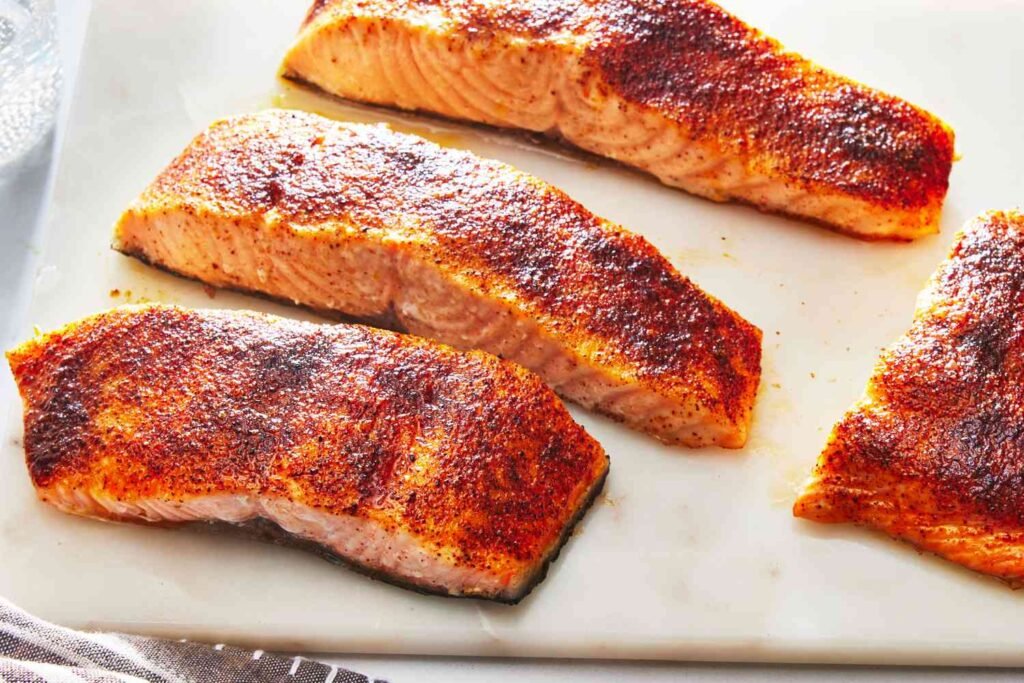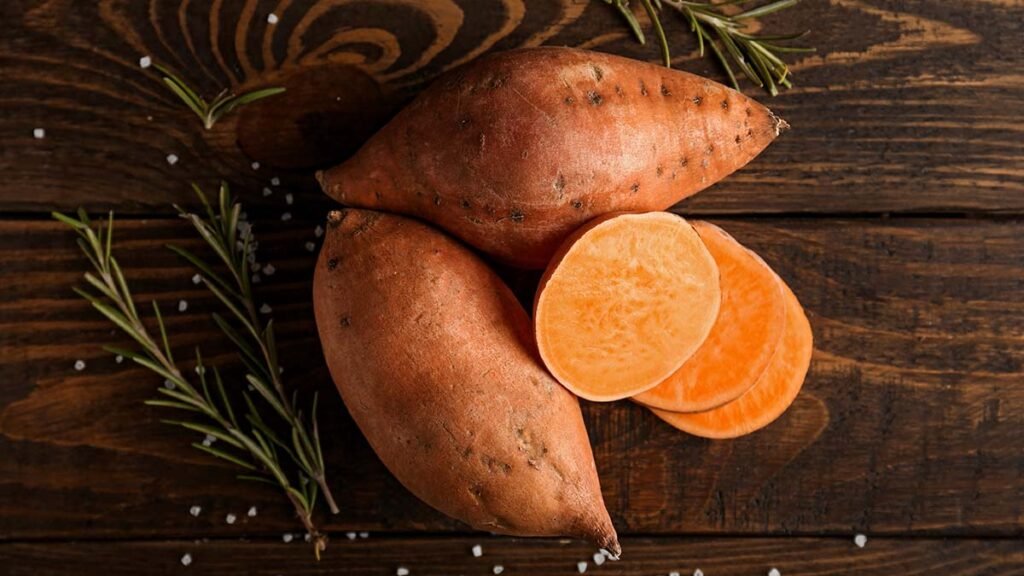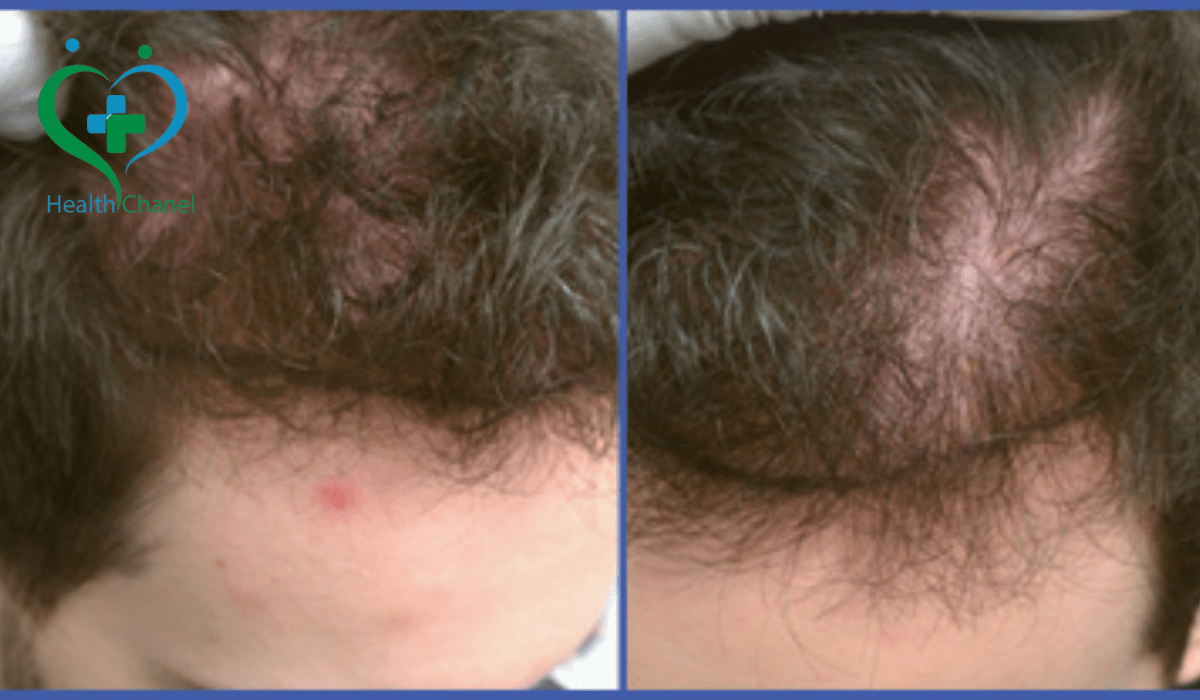Achieving thicker, stronger hair may feel like a challenge, but it all starts with the right nutrition. If you’re hoping to improve your hair’s health, growth, and thickness, the secret may lie in the foods you eat. A well-balanced healthy diet for hair growth plays a crucial role in ensuring your hair receives the necessary nutrients for optimal growth and nourishment. In this article, we’ll look at 7 foods for hair growth and thickness that can make a noticeable difference in your hair care routine.
1. Eggs: Biotin and Protein Powerhouse
Eggs are one of the best foods for hair growth due to their high protein and biotin content. Foods rich in biotin, like eggs, play an essential role in improving hair strength and promoting thicker hair. Biotin is a B-vitamin that helps support hair follicles and prevents hair loss. Since hair is primarily made of keratin, a protein, ensuring you consume enough foods high in biotin like eggs is key to strengthening and enhancing your hair. Incorporating eggs into your diet is an easy and effective way to support good diet for hair growth.
2. Spinach: Iron-Rich Foods for Healthy Hair
Spinach is another fantastic food to add to your diet. It’s packed with iron-rich foods for hair growth, which are vital for hair health. Iron helps carry oxygen to the hair follicles, stimulating growth and ensuring your hair receives the nutrients it needs. Iron deficiency can lead to hair thinning and even hair loss, so adding spinach to your meals is a great way to combat these issues. Spinach is also rich in vitamins A and C, which help produce sebum, the natural oil that keeps your scalp moisturized. If you’re looking for a vegetarian hair loss solution, spinach is an excellent option.
3. Salmon: Omega-3 Fatty Acids for Scalp Health
Salmon is packed with omega-3 fatty acids, which are beneficial for maintaining scalp health. The fish oil benefits for hair are significant as these healthy fats nourish your hair follicles, helping them stay hydrated and promoting hair growth. Omega-3s also reduce inflammation on the scalp, which can improve circulation and enhance hair thickness. Whether through eating salmon or using cod liver oil benefits for hair as a supplement, omega-3s should be a key part of your diet for good hair.

4. Avocados: Healthy Fats for Hydration
Avocados are rich in healthy fats, particularly monounsaturated fats, which play an important role in keeping your hair hydrated and maintaining its elasticity. These healthy fats prevent hair breakage and promote overall hair health. Additionally, avocados contain vitamin E, an antioxidant that protects hair follicles from damage. Adding avocados to your diet ensures a balanced diet for hair growth, helping maintain a nourished scalp and healthy, shiny hair. Whether you’re spreading it on toast or adding it to a smoothie, avocados are a great, versatile addition to any meal.
5. Nuts and Seeds: Essential Nutrients for Stronger Hair
Nuts and seeds are among the best nuts for hair growth. Packed with healthy fats, zinc, and selenium, these tiny powerhouses can provide significant benefits for your hair. Zinc helps regulate hair oil production, while selenium protects hair follicles from damage caused by free radicals. Whether you prefer almonds, walnuts, or flaxseeds, incorporating these into your snacks or meals can nourish your hair from the inside out. Antioxidant food for hair, such as walnuts, also prevents oxidative stress and helps maintain thick, strong strands. A handful of these nutrient-rich nuts and seeds a day can greatly improve hair health.
6. Spirulina and Chlorella: Superfoods for Nourishment
Spirulina benefits for hair include its high content of amino acids, iron, and vitamins, which all support healthy hair growth. Spirulina, along with chlorella benefits for hair, is packed with nutrients that help cleanse and detoxify the body. These superfoods promote healthy circulation and nourish hair follicles, improving the overall health of your hair. Adding spirulina or chlorella to your diet for good hair can give your hair the extra boost it needs to grow thicker and stronger.
7. Sweet Potatoes: Vitamin A for a Healthy Scalp
Sweet potatoes are rich in beta-carotene, which is converted into vitamin A by the body. Vitamin A is crucial for healthy cell production, including hair cells. It also stimulates the production of sebum, the oil that keeps your scalp hydrated and your hair shiny. Eating wheat germ for hair growth is another great option for promoting hair health, but sweet potatoes are a tasty, nutrient-packed source of vitamin A that supports both scalp health and hair growth. A serving of sweet potatoes can help keep your scalp moisturized, preventing dryness and breakage.

Conclusion: Nourish Your Hair with the Right Foods
For hair growth and thickness, it’s essential to incorporate nutrient-dense foods into your daily routine. From foods high in biotin like eggs to iron-rich foods for hair growth like spinach, each food listed above offers a unique benefit for your hair. Spirulina benefits for hair, fish oil benefits for hair, and chlorella benefits for hair are particularly useful for promoting healthy scalp circulation and follicle nourishment.
Adding these superfoods to your healthy diet for hair growth will help ensure you’re getting the nutrients needed for thicker, stronger hair. You can also consider vitamin B12 supplements for hair or hair dietary supplement if needed, but the foundation of your hair health should always be rooted in a balanced, nutrient-rich diet. Start including these foods for healthy scalp and foods rich in keratin and biotin in your meals, and you’ll soon see the benefits in the form of stronger, thicker, and more vibrant hair.



